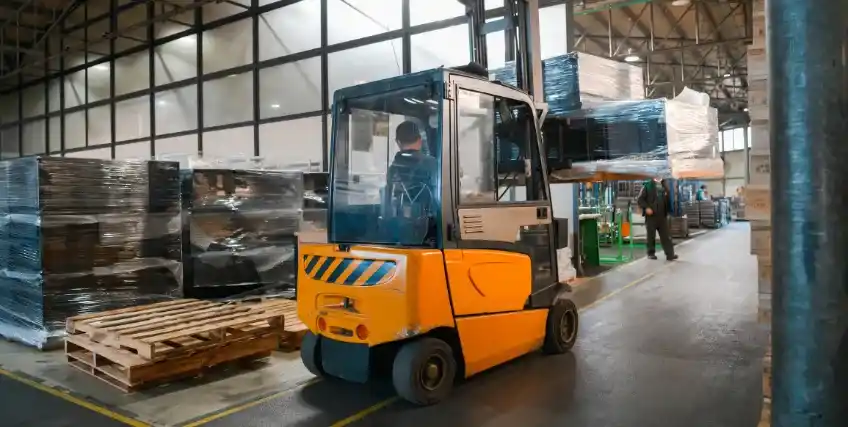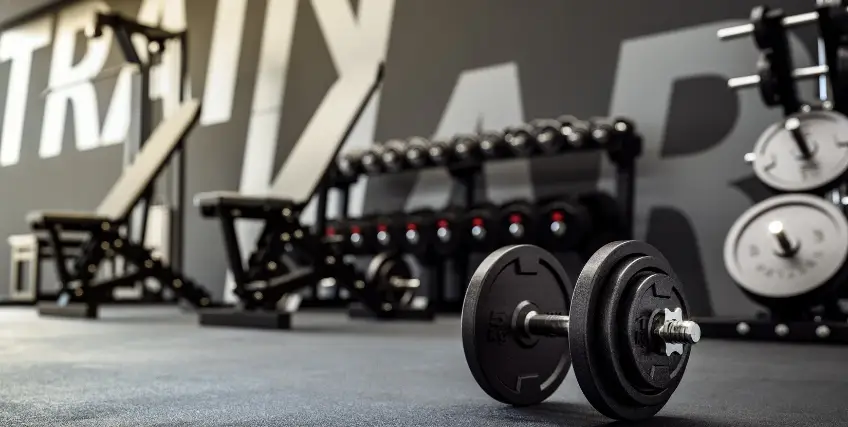How Your Industry May Affect Equipment Loan Interest Rates
September 26, 2025 | Last Updated on: September 26, 2025

If your business needs new equipment, a loan can help. Equipment financing can also preserve your business’s working capital. Have you ever wondered whether lenders consider a business’s industry to determine interest rates on equipment loans?
Indeed, lenders often take into account a borrower’s industry when setting interest rates on loans for all kinds of reasons. They’ll look at statistics to determine which industries have the highest or lowest default rates, which industries are likely to experience growth or are facing economic headwinds that could affect payback. Then, they adjust their interest rates accordingly.
Let’s dive in and learn more about equipment loans and how your industry might affect how much interest you’ll pay.
What are the average interest rates on loans for equipment?
Business loan interest rates vary widely. They can run from as little as 10% to as high as 30% or more. Rates do change from time to time, so it’s always a good idea to check with your lender what their common rates are when you apply.
Several factors can determine if your loan is approved and how much interest rate is charged. These factors include:
- The type of loan and the lender
- Credit score and history
- How long you’ve been in business
- Your company’s financial position, in particular, its profit and cash flow position
- The type of equipment
- How much downpayment you come up with
- Your business’s industry
Small business owners usually have an easier time getting loans with low interest rates when they have higher credit scores. If your credit is pristine, you may be able to get interest rates on loans that are close to the prime interest rates, such as 10%. But even with near-perfect credit, your business performance or industry might lead the lender to raise your rate.
Business loan rates will be higher if a lender feels the risk of loan default is higher. They may also charge higher rates if the collateral on the loan is less than ideal. On the other hand, equipment loans will have lower interest rates if a lender feels there is less risk.
All business loans are essentially a bet on your company. Lenders charge interest rates on loans to protect themselves from potential loan defaults.
Several things outside your control and industry can impact your business’s operations. We’ve seen this play out in recent years with supply chain issues, poor economic conditions, inflation, and rising interest rates.
How do equipment loans work?
The first step to getting an equipment loan is the underwriting process. This process varies from lender to lender. Most lenders will evaluate any documentation you submit and your ability to pay back the loan.
Equipment loans are usually easier to get because the equipment is used as collateral. This gives the lender assurance if the borrower doesn’t pay back the loan as agreed. Still, many lenders require a downpayment of up to 30% to show that you’re committed to paying back the loan. But, a few don’t require a downpayment and will finance 100%.
Once you’re approved for a loan, the lender determines the loan terms. Repayment terms can range from one to seven years. Equipment loan providers generally won’t go beyond the equipment’s expected useful life. Equipment financing companies will consider the equipment’s value at depreciation. Equipment that has a longer useful life means longer terms to pay back the loan.
Many equipment financing solutions offer lower interest rates on loans if the risk of default is lower. However, if the risk of default is higher or a borrower’s credit history is shaky, higher interest rates are common. Either way, repayment is usually spread out into equal monthly payments over the term of the loan.
Recommended equipment loan documents
No matter what industry your business is in, it’s best to be prepared for the loan process. It’ll increase your chances of approval and help you get more competitive rates with lower monthly payments.
To achieve this, you’ll need the following:
- Business plan
- A cash flow analysis or statements
- Balance sheets and other relevant financial documents
- Tax returns
- Bank statements
Ask your lender what type of documentation is required and have it ready to speed up the loan process.
Traditional lenders, like banks and SBA lenders, require more documents and time to process loans. Alternative financing providers and online funding platforms may be able to get you funding more quickly.
Which industries benefit from equipment loans?
Businesses in many industries need equipment loans. Here are some examples:
Construction
Construction companies rely on expensive, heavy equipment to remain operational. Construction vehicles, cranes, and foundation materials are quite an investment. Heavy equipment loans make it easier to purchase much-needed heavy machinery and equipment to run your business.
One challenge construction owners face is that equipment can become outdated. Some types of equipment need to be replaced more than others. A truck that hauls tons of lumber probably won’t need to be replaced by a costly new truck every couple of years like a computer will.
The equipment finance industry considers it a higher risk to loan money for construction equipment. That’s because construction companies are affected by the housing market. If it’s volatile, the risk of default is greater. When a construction owner applies for financing, they might get higher interest rates on loans due to the increased risk.
But as the economy grows, so does the real estate market. Consumer and lender confidence are higher at these times. A lender is more likely to be positive about a business’s ability to repay a construction loan when the housing market is booming. The opposite is true during a challenging economy.
The good news is that construction equipment typically lasts longer than other types of equipment. This means you shouldn’t have to take out an equipment loan often. Plus, you’ll likely have a warranty to keep your equipment operational during the loan’s duration.
Medical Industry
The medical industry is another sector that relies on equipment to remain operational and competitive. Medical professionals and patients want the latest technology and equipment for the best care.
Dental chairs, examination and surgical tables, and the latest state-of-the-art diagnostic equipment require large upfront costs. While the medical industry is financially rewarding, it takes a lot to keep up with operational expenses.
That often means buying medical equipment from your business’s cash flow isn’t possible. An equipment loan can help pay for expensive medical equipment purchases. These loans are generally accessible, though you’ll still need to qualify, and loan rates are typically lower due to the industry’s high success rate.
Food and Hospitality
Restaurants, hotels, and food businesses can be challenging industries for owners and lenders alike. That means that interest rates on equipment loans, often used for major equipment purchases that make it possible to run these businesses, can be higher.
This is because restaurants have a high failure rate. Their success depends on many factors. Most restaurants need a prime location to succeed. And that means lots of capital. Many restaurants are also seasonal, and the industry has a high employee turnover rate.
Now, let’s talk about hotels. Since the pandemic, consumers value an elevated travel experience more than ever. They look for hotels that invest in the amenities that provide more value for their stay.
Many hotels are investing in fitness centers, in-room exercise equipment, spa equipment, and more. That’s on top of the basic equipment essential to hotels.
Unfortunately, lenders often view hotels as a risky venture. So, it can be challenging to secure a hotel equipment loan with traditional lenders and the SBA.
Industrial Businesses and Other Industries
Industrial businesses, including manufacturing, agriculture, and others, constantly evolve and rely on new technologies to stay relevant.
Automation and robotics are quickly becoming common. To keep pace within the industrial sector, it’s vital to adopt new technologies.
That likely means investing in new equipment to stay ahead of the game.
Many industries can benefit from financing the equipment needed to run their businesses. These include realtors who need office equipment, CPAs who need secure wireless networks, and much more. Often, these will not qualify for dedicated equipment financing, but there may be working capital financing solutions, such as revenue-based financing, which can be useful in these cases.
Whatever your business industry, if you can show your lenders you’re committed and have a winning business plan, getting an equipment loan is easier than you might think.
Bottom line on equipment loan interest rates
Regardless of your company and its industry, it pays to do your homework before applying for an equipment loan. Seeing your business from the lender’s perspective can help you get better interest rates on loans.
It also helps to partner with an equipment loan provider who understands your industry. As you vet potential lenders and evaluate where you would like to submit an application, check their website for case studies and examples from your industry. Or if you’re already in conversation with a lender, don’t be afraid to ask them how often they work with clients in your industry. The answer may be enlightening.
FAQs About Equipment Loan Interest Rates
What qualifies as equipment for loans?
Equipment financing includes loans for many things needed to run a business. These include computer equipment, office furniture, hotel furnishings, company vehicles, medical equipment, and more.
What types of loans are considered equipment financing?
Equipment financing options include SBA loans, term loans, and business lines of credit. Another type of funding called revenue-based financing is another option for borrowers with weaker credit.
Are there other factors that determine the interest rate on business equipment financing?
Besides your credit and business profile, the economy and Federal Reserve rates can influence rates. A more challenging economy and increased Fed rates can mean higher interest rates on loans. On the other hand, a thriving economy and lower Federal Reserve rates can mean lower interest rates.
How long will I typically have to repay an equipment financing loan?
Equipment financing companies each have their criteria for setting loan terms. Repayment schedules can vary from one year to ten years. But, three to five years is the average loan length.
What type of credit score is needed for an equipment loan?
It depends on the type of loan and the lender. However, the higher your credit score, the more favorable your loan terms and interest rate.




